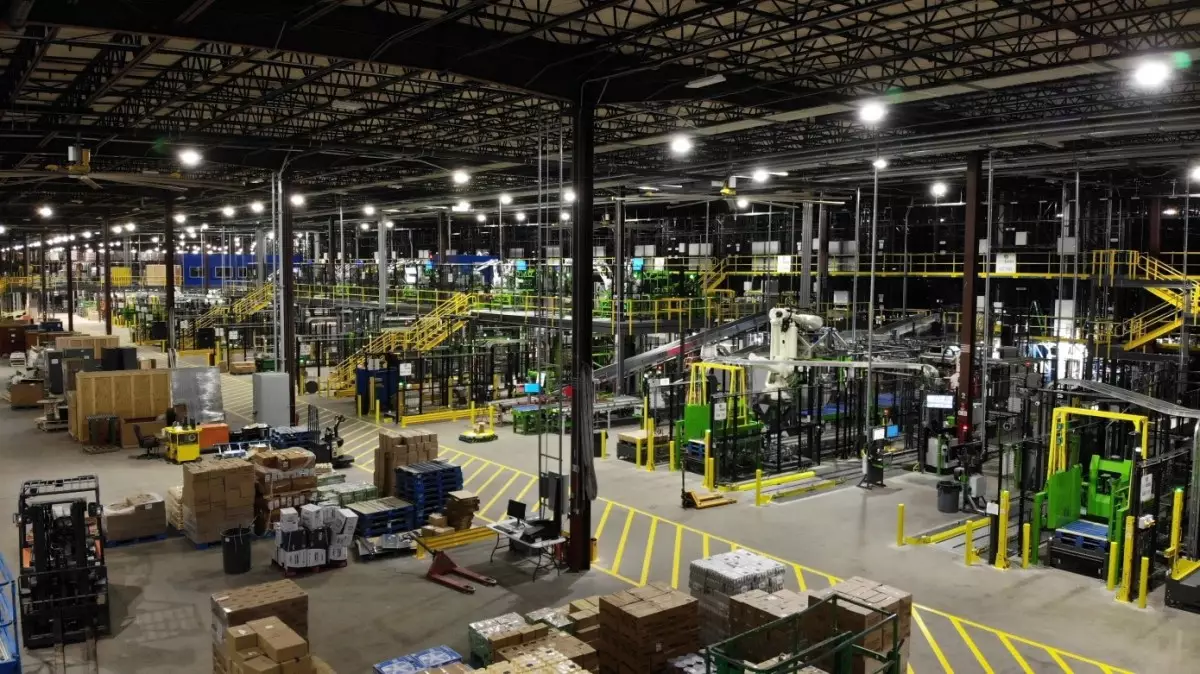In a groundbreaking move within the retail logistics sector, Walmart has struck a collaborative agreement with Symbotic, a prominent robotics firm based in Massachusetts. This partnership, announced on Tuesday, sees Symbotic taking over Walmart’s automation initiatives. The financial terms highlight the scale of this commitment—Symbotic will pay Walmart an upfront sum of $200 million, supplemented by potential conditional payments that could reach up to an additional $350 million. This progressive deal exemplifies a fusion of retail operations and cutting-edge technology, enabling both entities to potentially gain significant advantages in a highly competitive market.
The collaboration between Walmart and Symbotic stretches back to 2017, marking one of the earliest integrations of automated systems in Walmart’s U.S. distribution centers. By solidifying this bond, Symbotic not only reinforces its position as a crucial technology partner but also underscores the importance of robotics in modern retail logistics. This strategic ownership of Walmart’s automation processes is not merely an acquisition; it’s a partnership aiming to revolutionize the way Walmart operates its pickup and delivery services. This shift indicates a trend where retailers prioritize efficiency and technological integration to enhance service delivery and customer satisfaction in an era defined by rapid e-commerce growth.
Looking Ahead: Industry Implications
While this deal significantly cements Walmart’s reliance on Symbotic’s technological innovations, it also raises questions about Symbotic’s future engagements with non-Walmart customers. As Symbotic scales its operations to effectively manage Walmart’s automation, the company may face challenges in balancing its commitments to other retailers. This scenario echoes Amazon’s earlier acquisition of Kiva Systems, which laid the foundation for its extensive robotics operations. Both cases reflect an industry-wide shift towards heavy investment in automation as retailers aim to maintain competitive edge in a fast-evolving marketplace.
The timing of this announcement is also noteworthy, coinciding with political shifts in the U.S. that may lead to a more lenient regulatory approach towards corporate mergers and acquisitions. Recent events, including Amazon’s unsuccessful attempt to acquire iRobot due to strict international regulations, serve as a reminder of the complex landscape that surrounds corporate expansion strategies. The successful completion of the Walmart-Symbotic partnership is anticipated by Q2 2025, potentially ushering in a new era of efficiency-driven retail operations that could reshape market dynamics across the industry.
Ultimately, the Walmart and Symbotic partnership stands as a testament to the growing importance of automation in retail. By integrating sophisticated robotics into its logistics framework, Walmart strives not only to enhance its operational capabilities but also to set a benchmark for competitors navigating the same terrain. As consumer expectations continue to rise, this alliance might very well redefine not just Walmart’s business model, but also encourage similar strategic partnerships across the retail sector. The implications of this deal, therefore, extend far beyond the immediate financial figures to encompass a broader shift towards automation in an ever-competitive marketplace.

